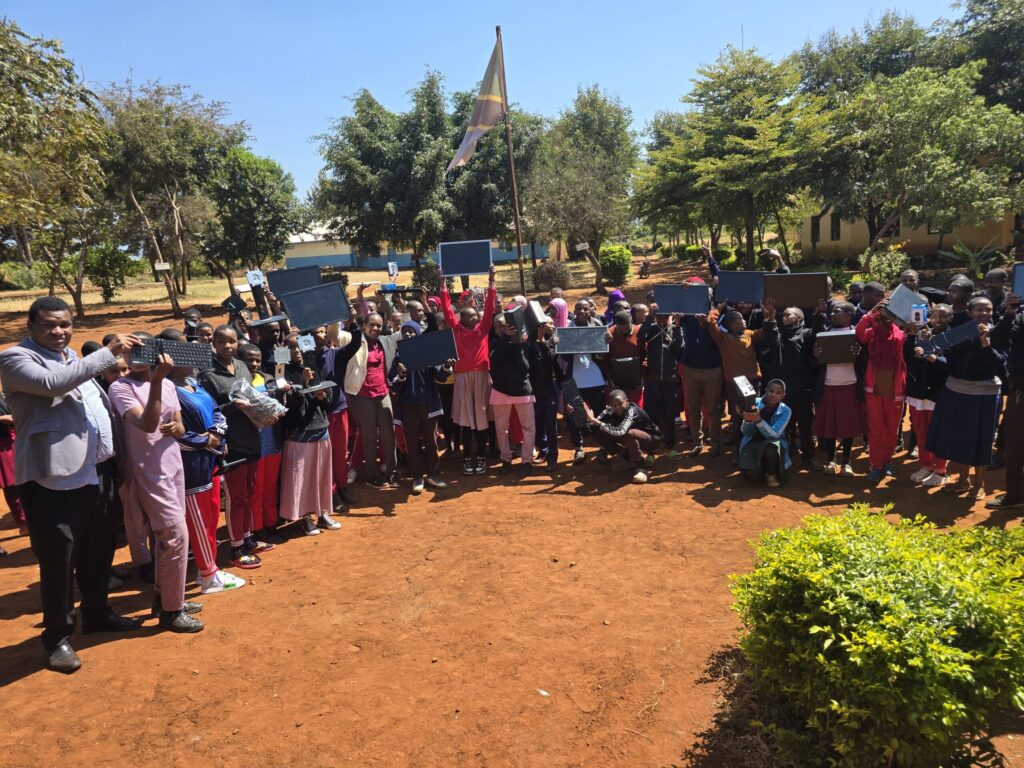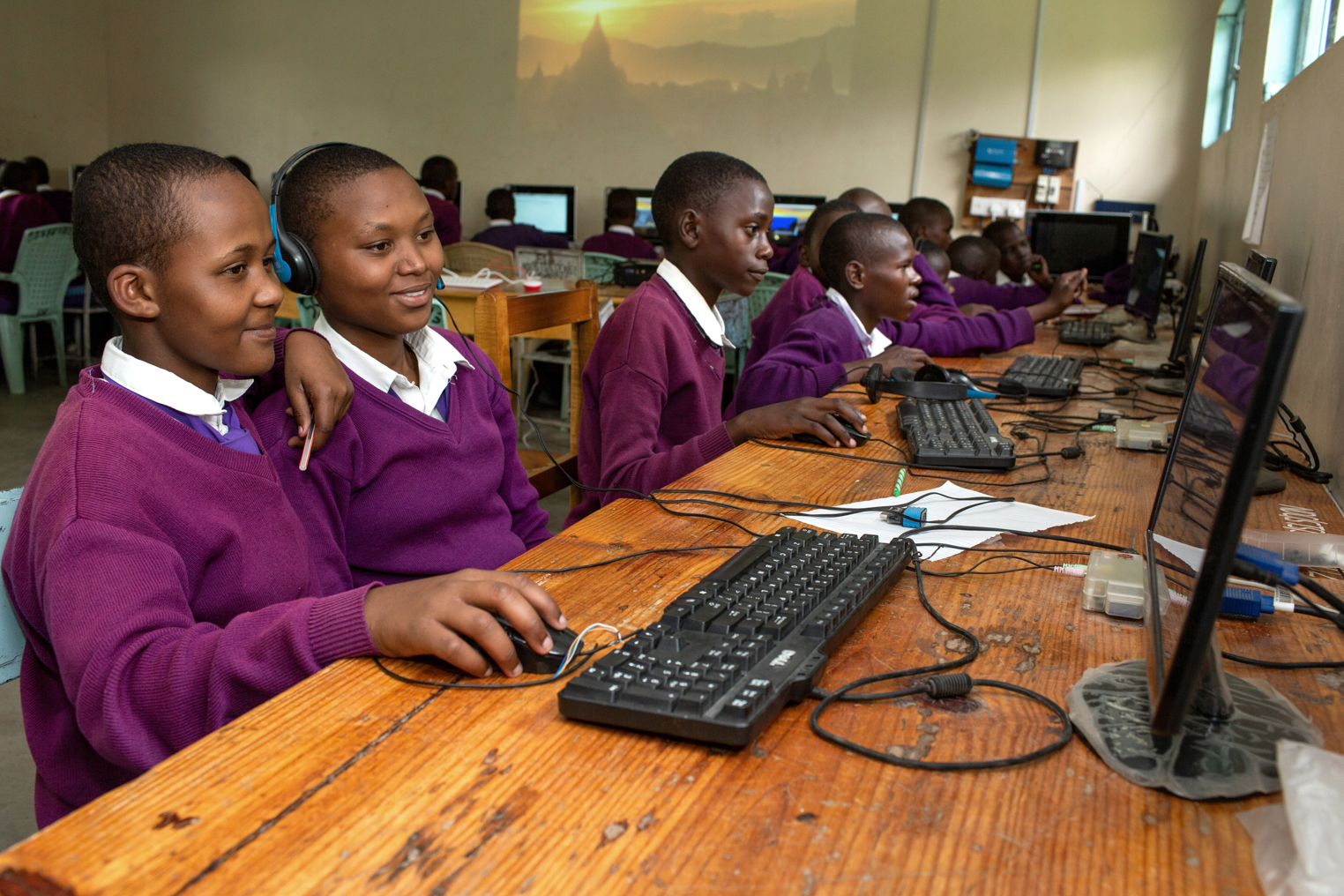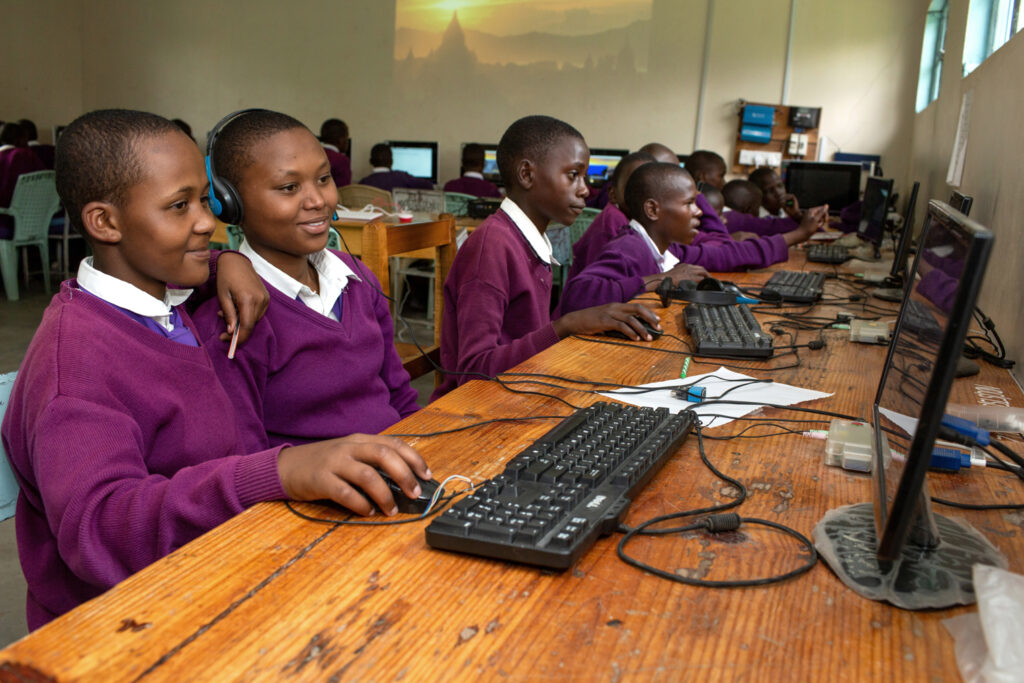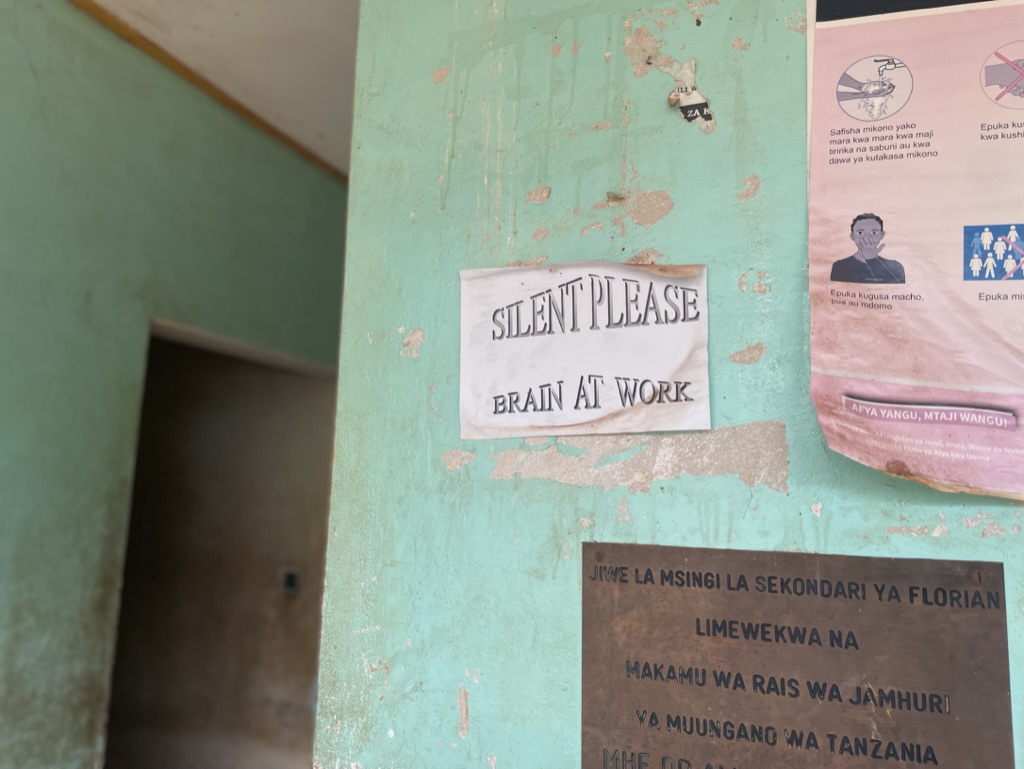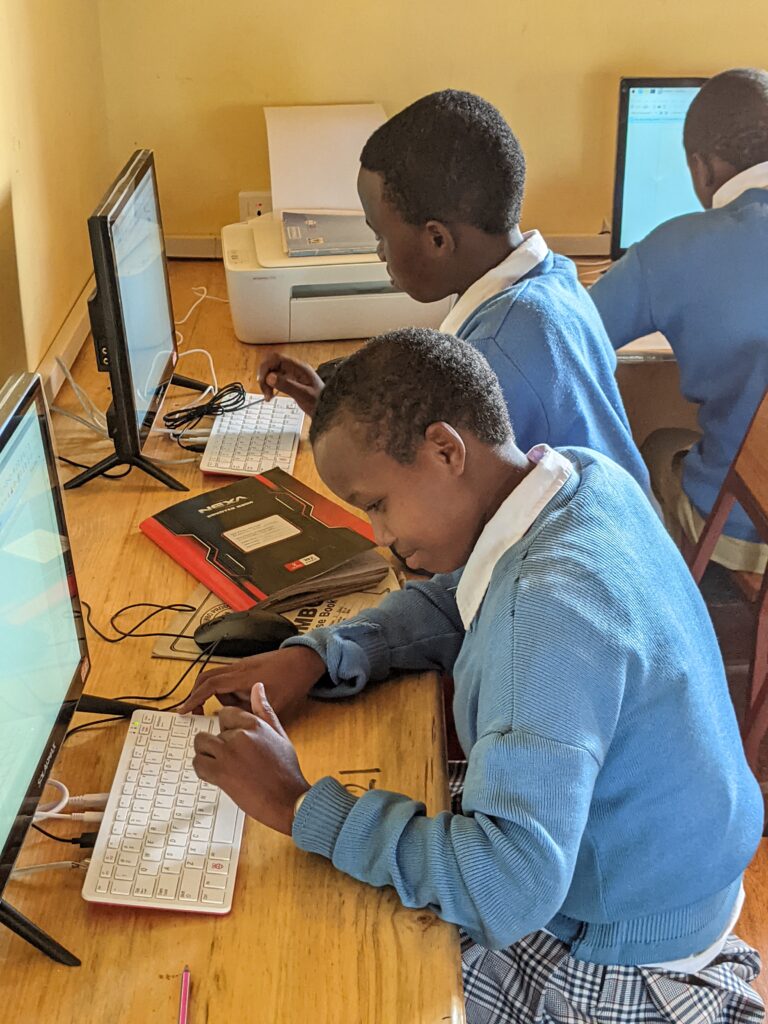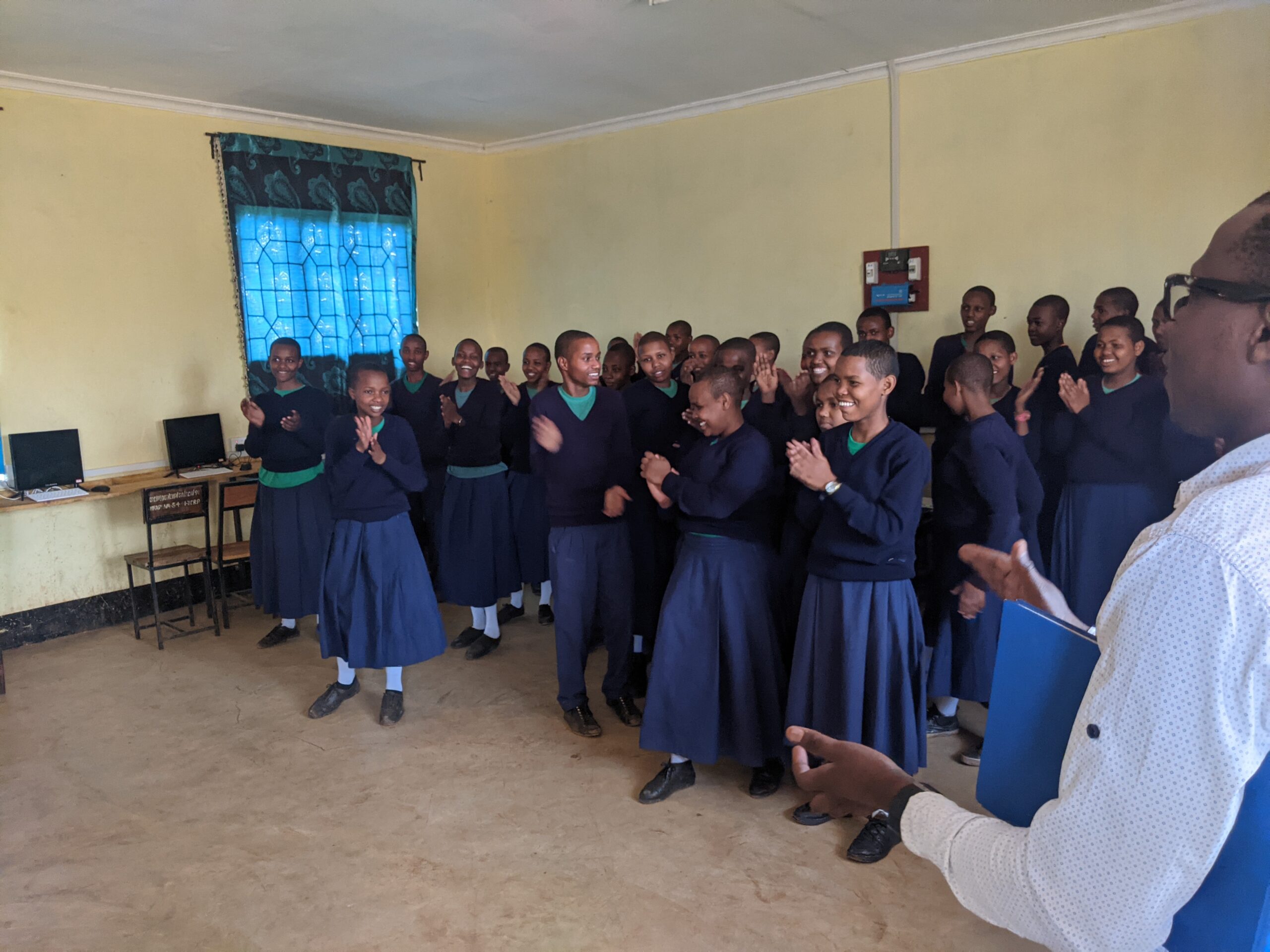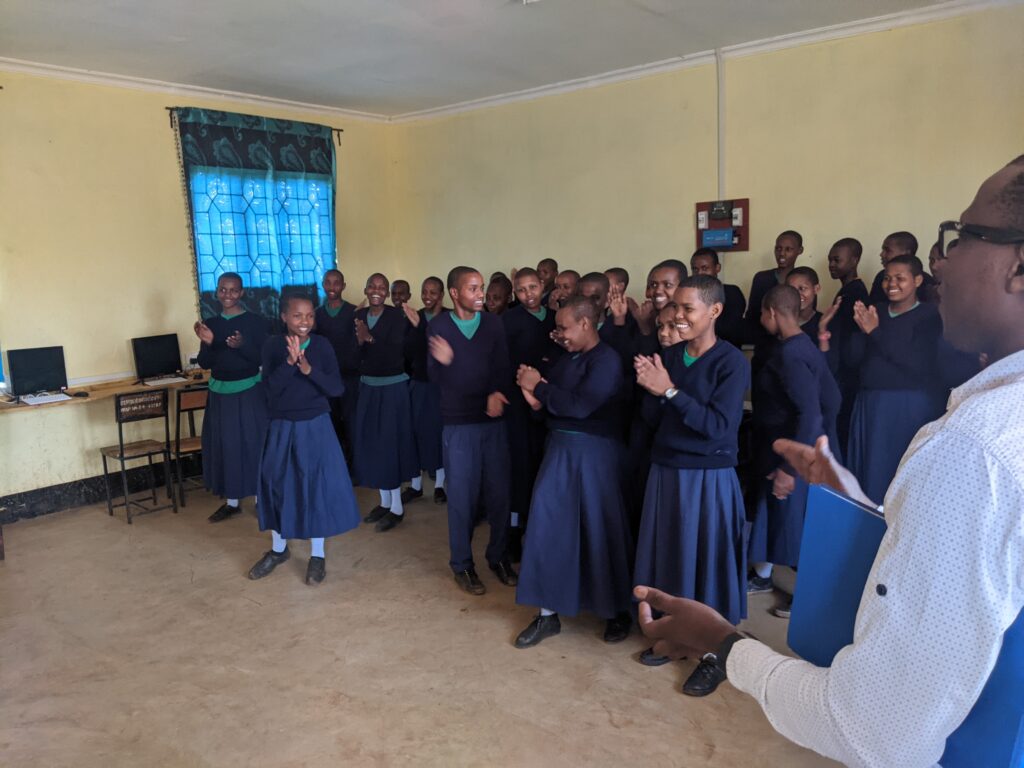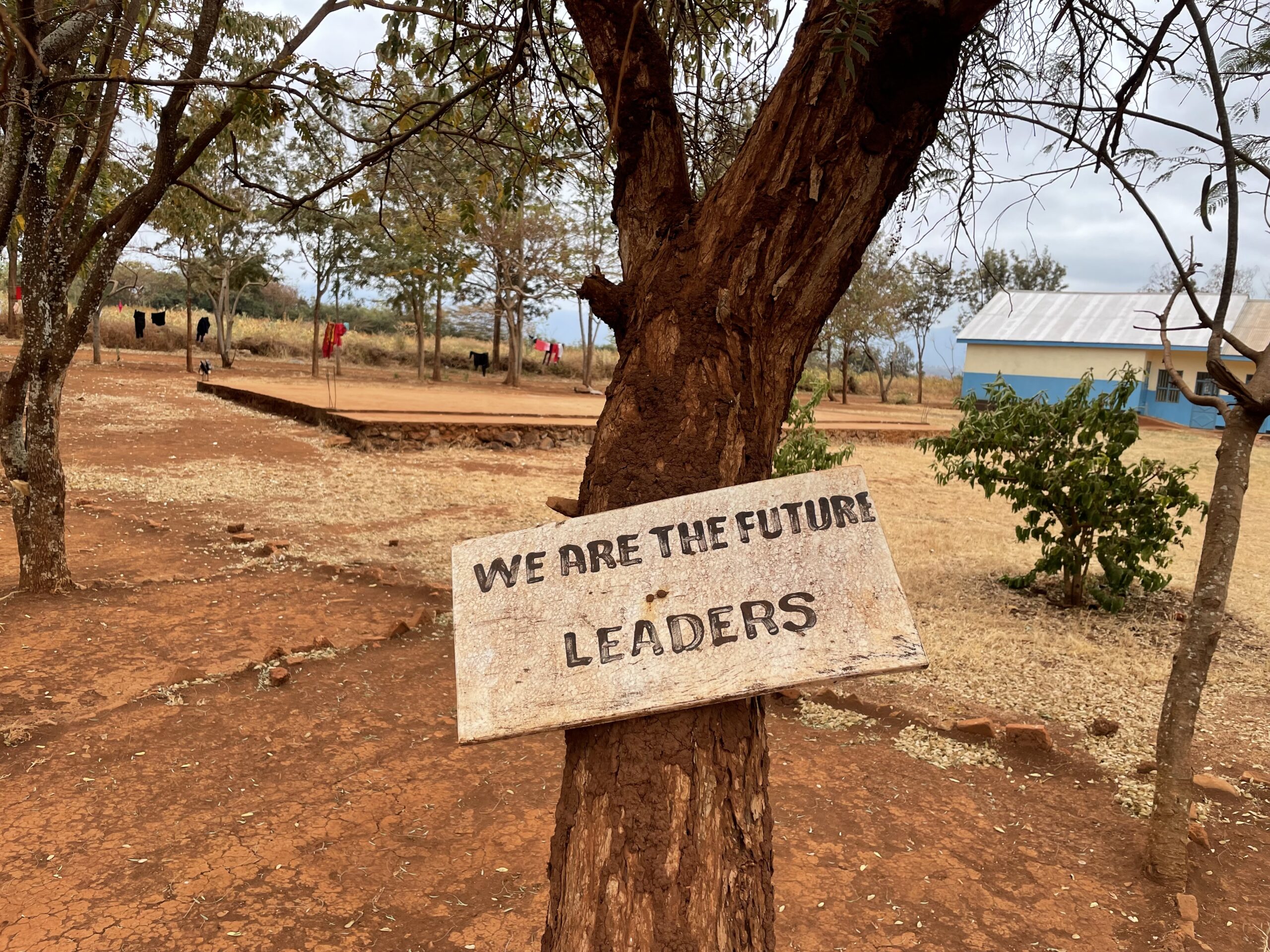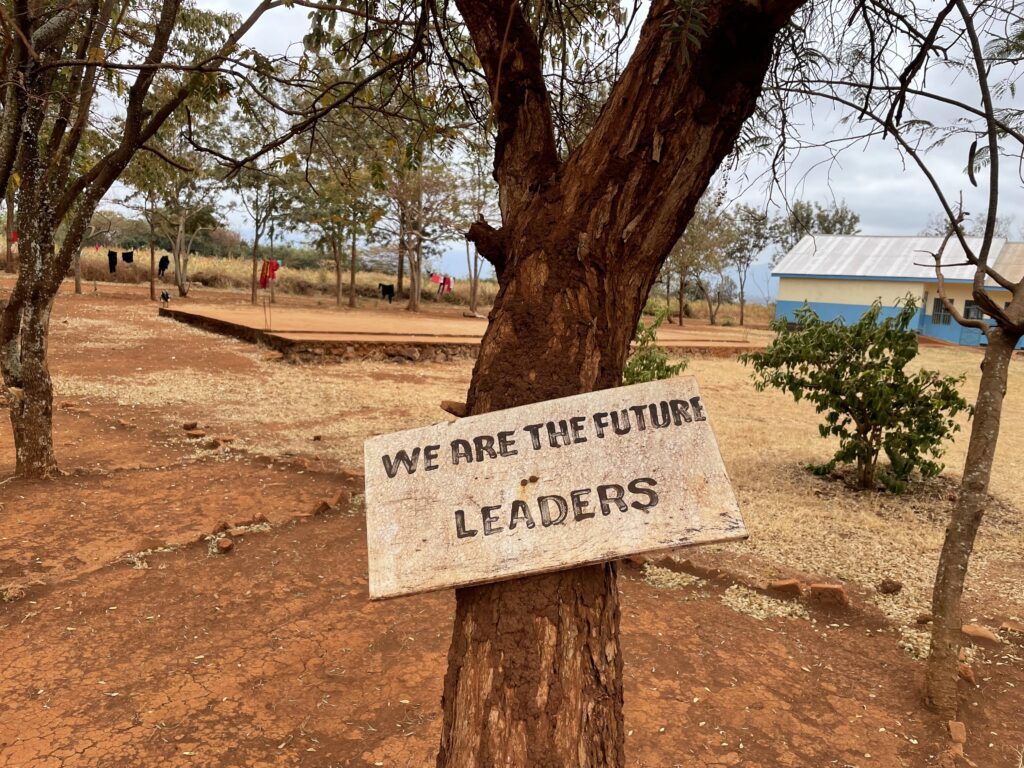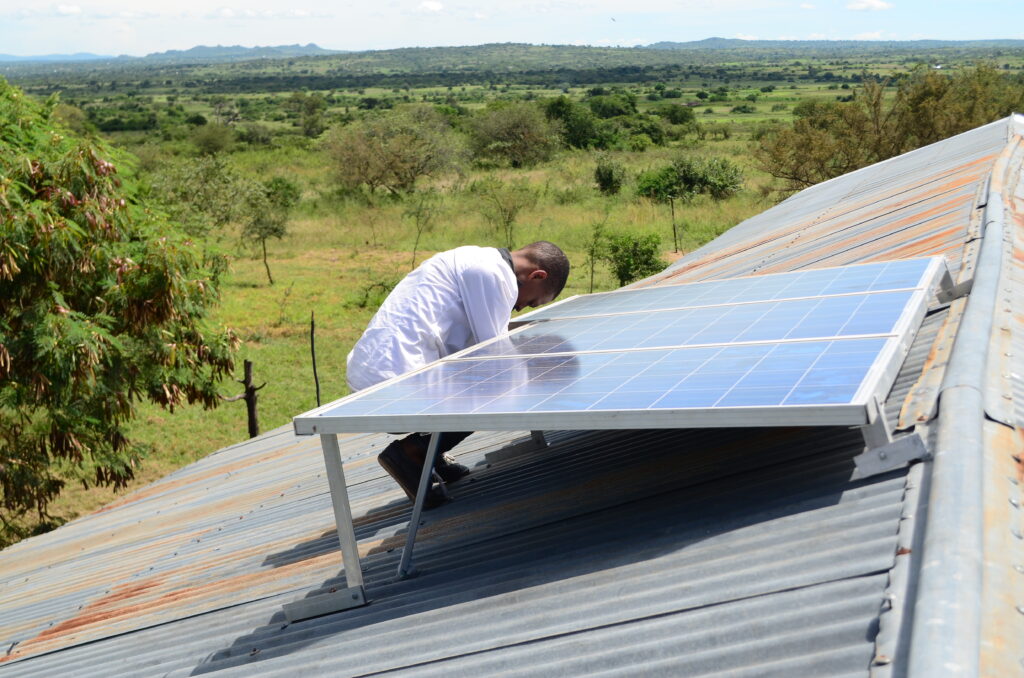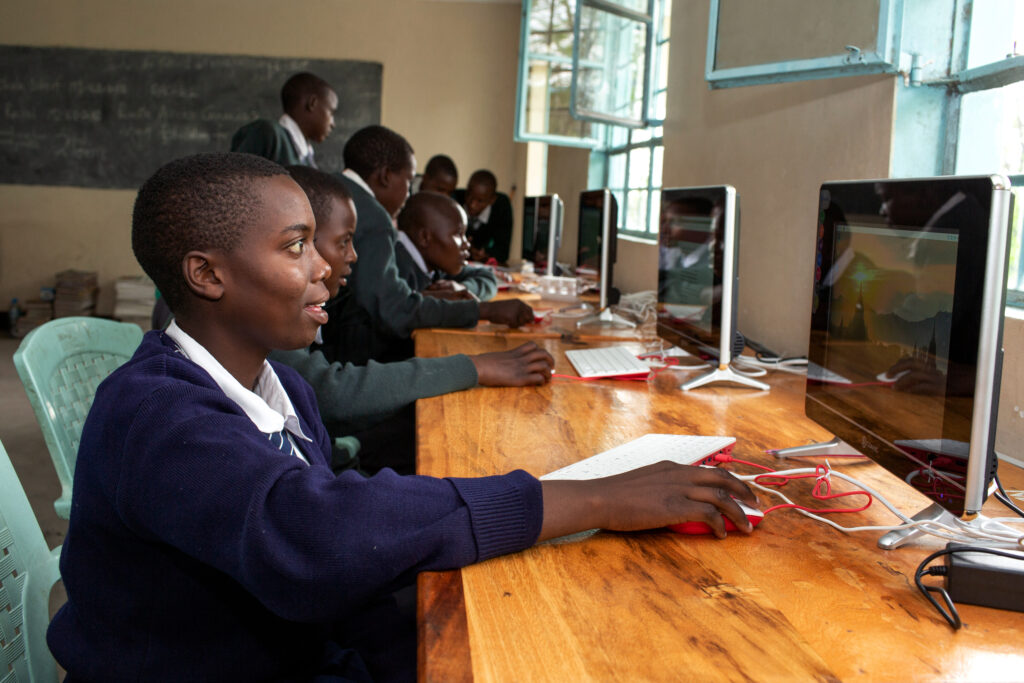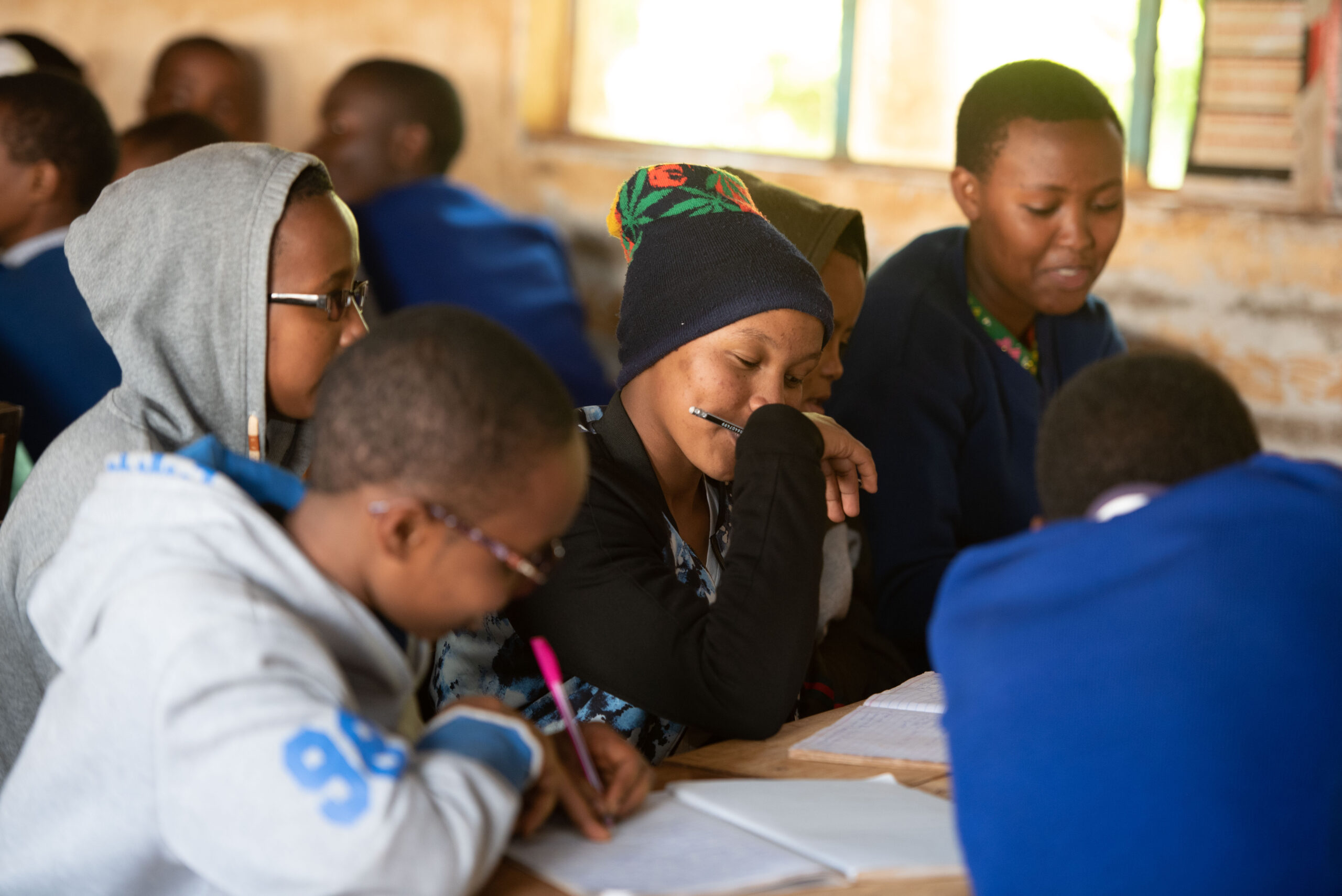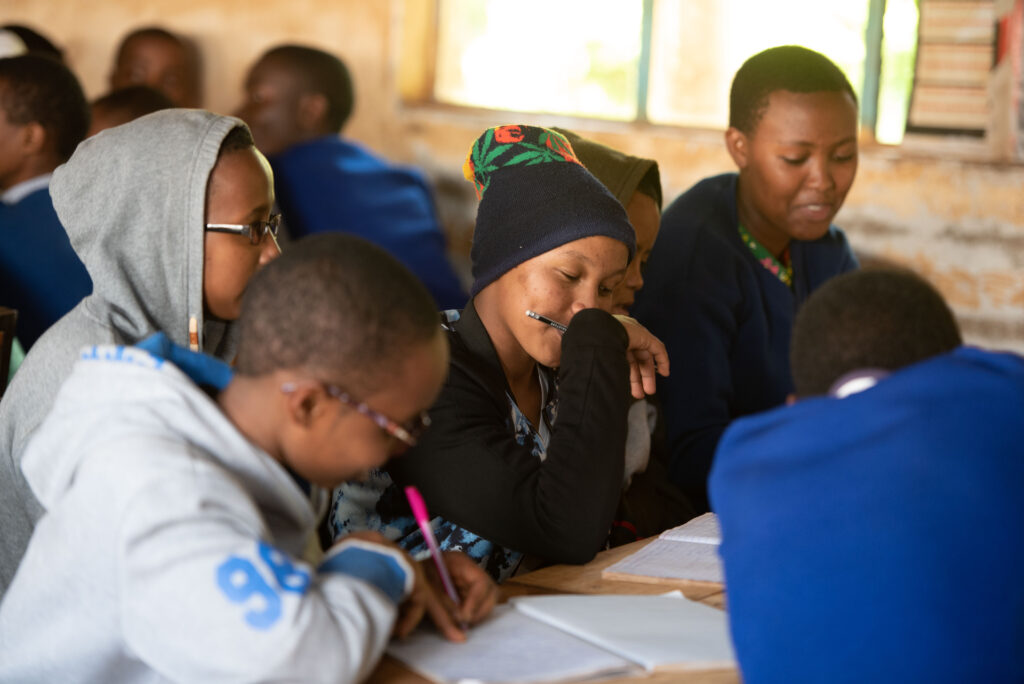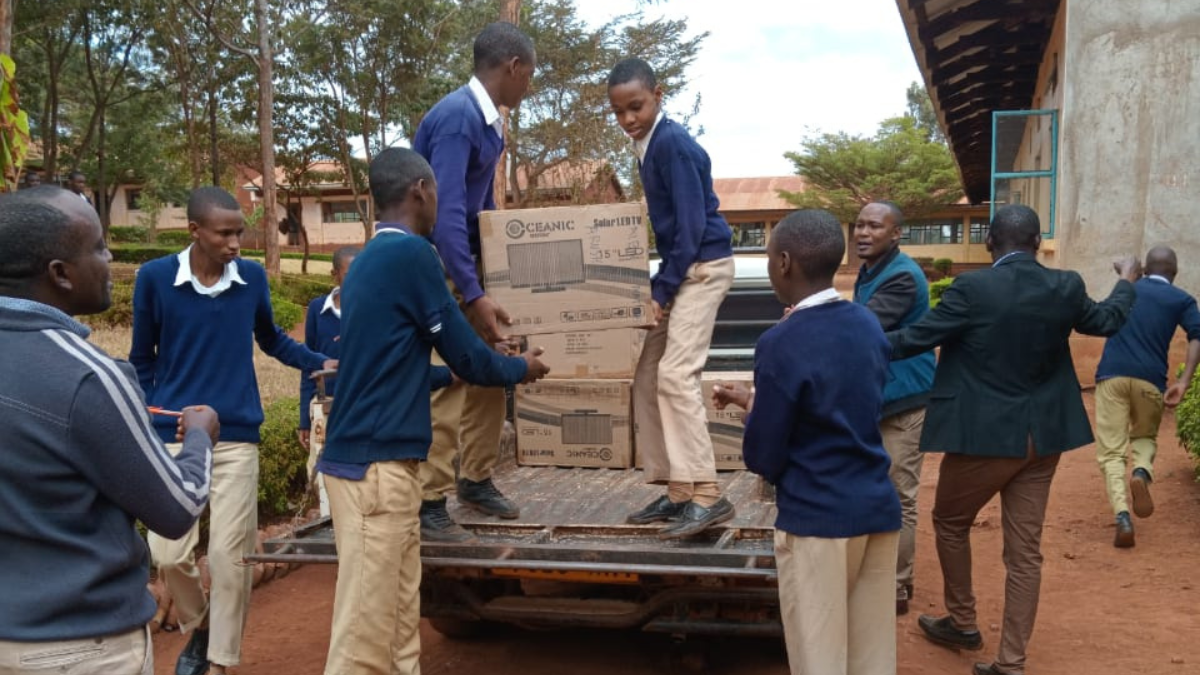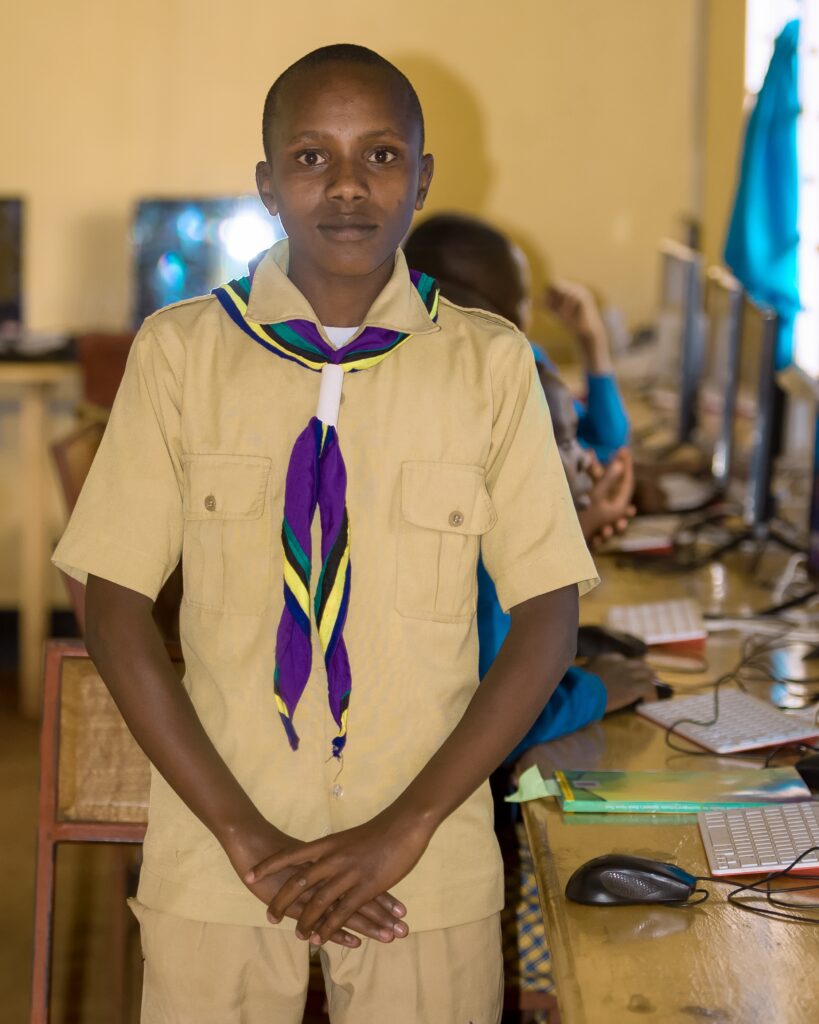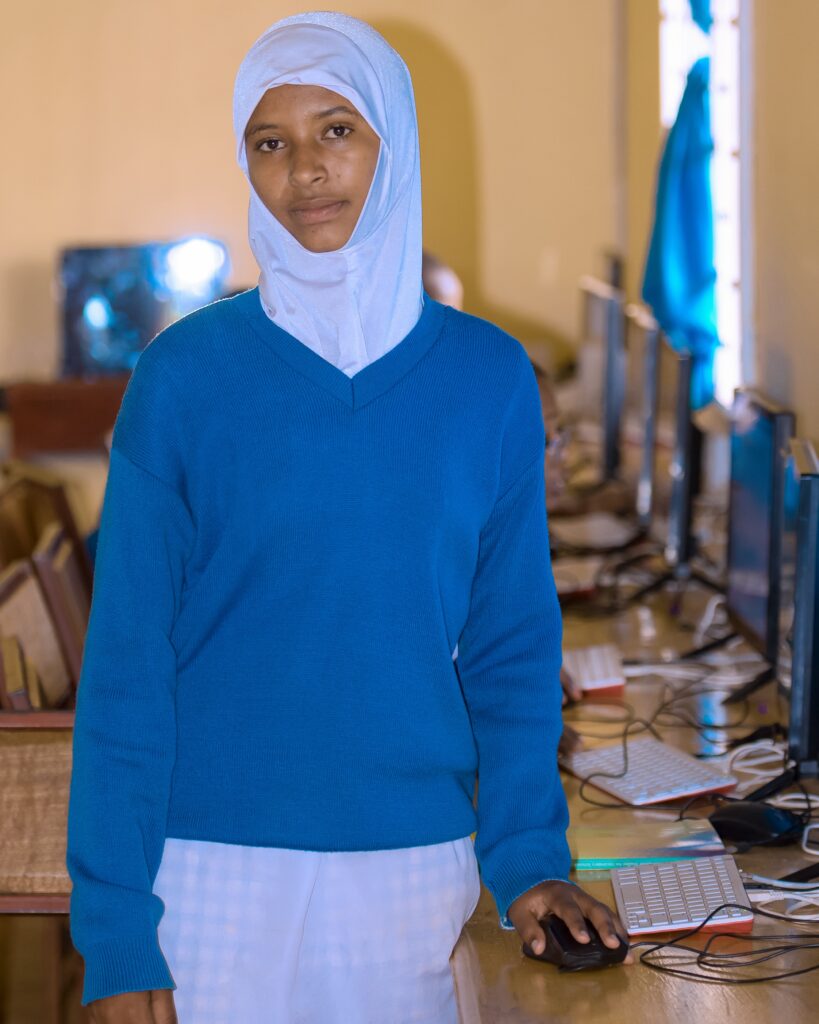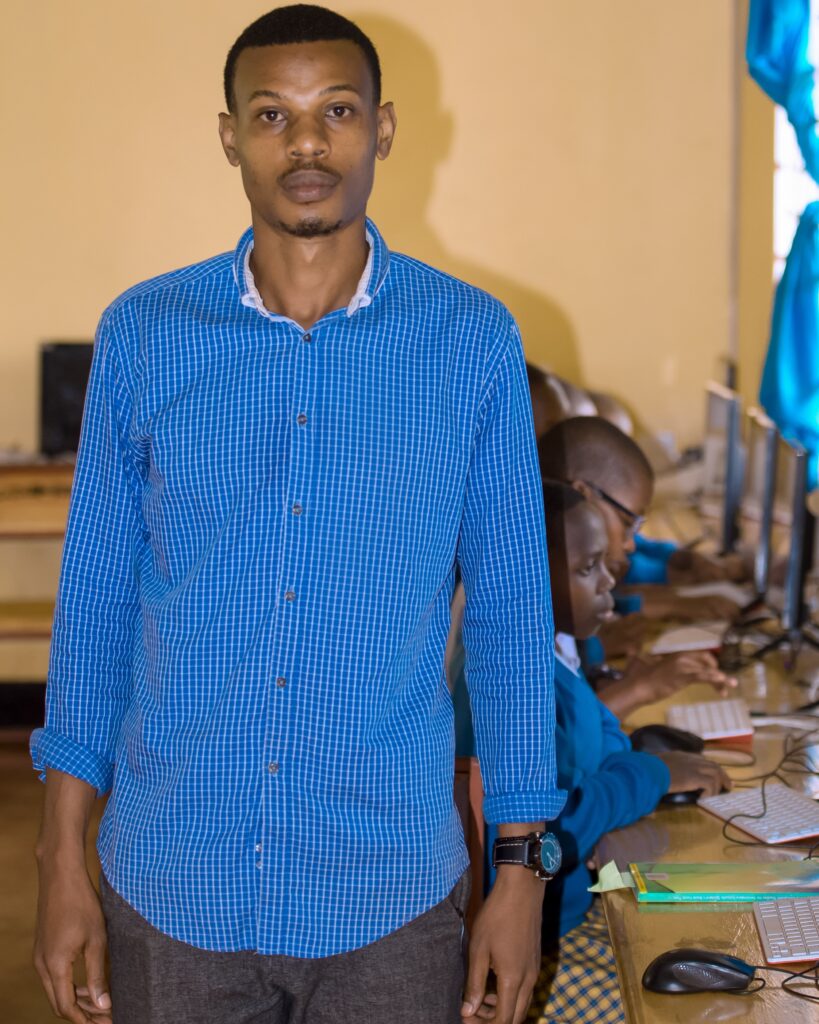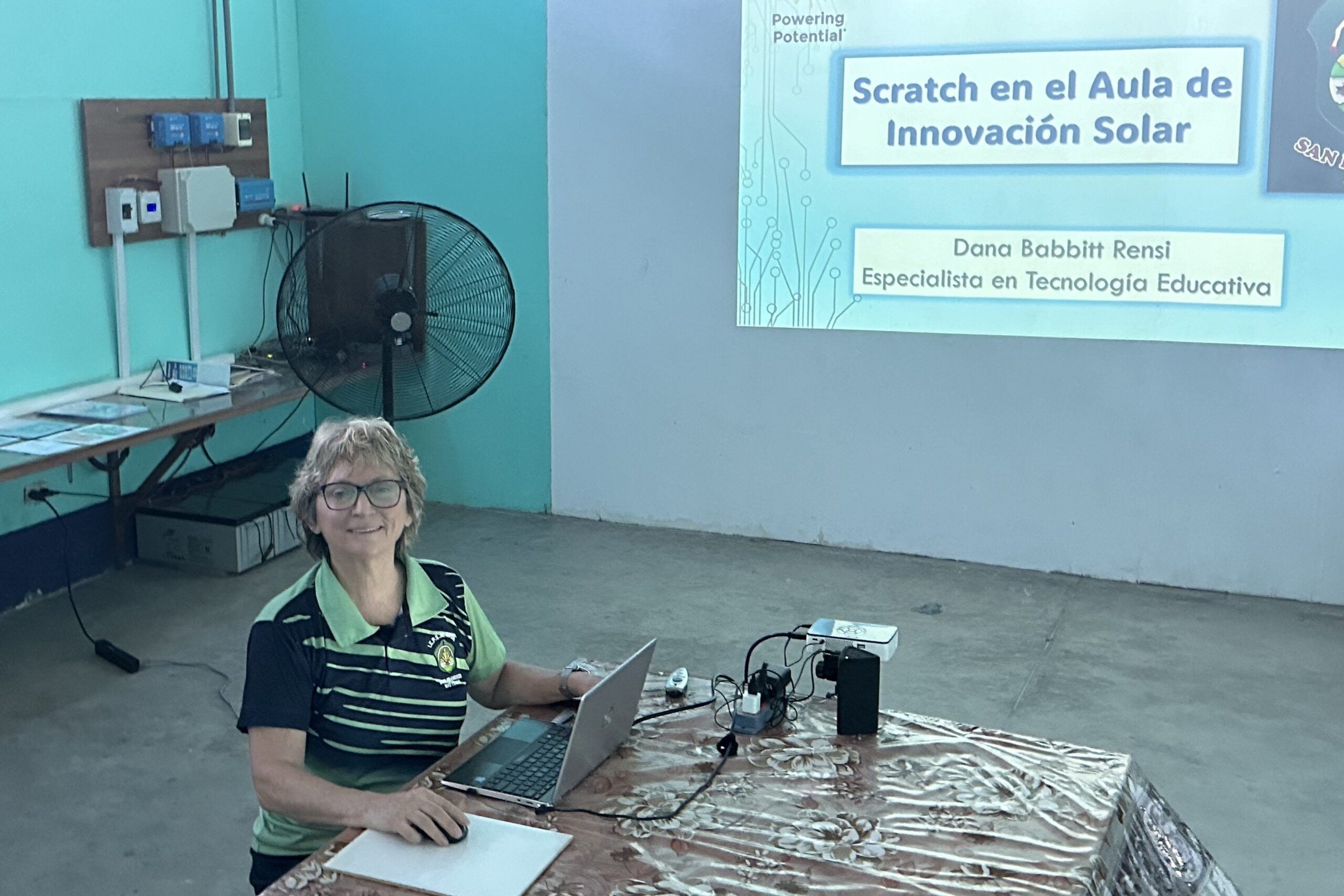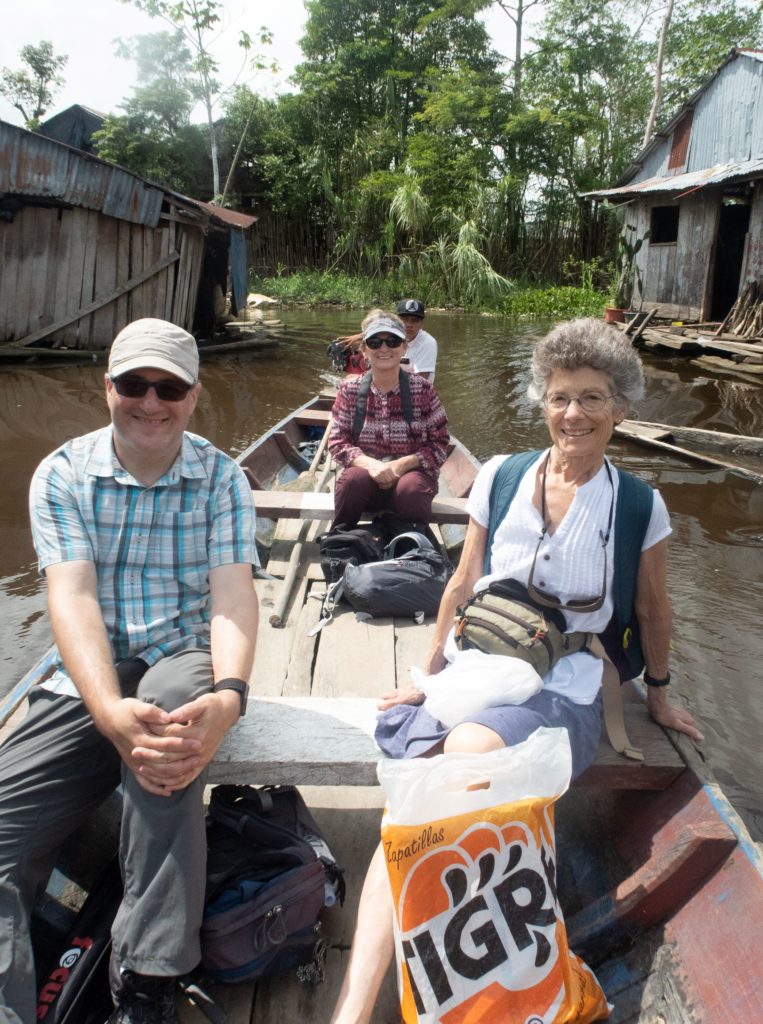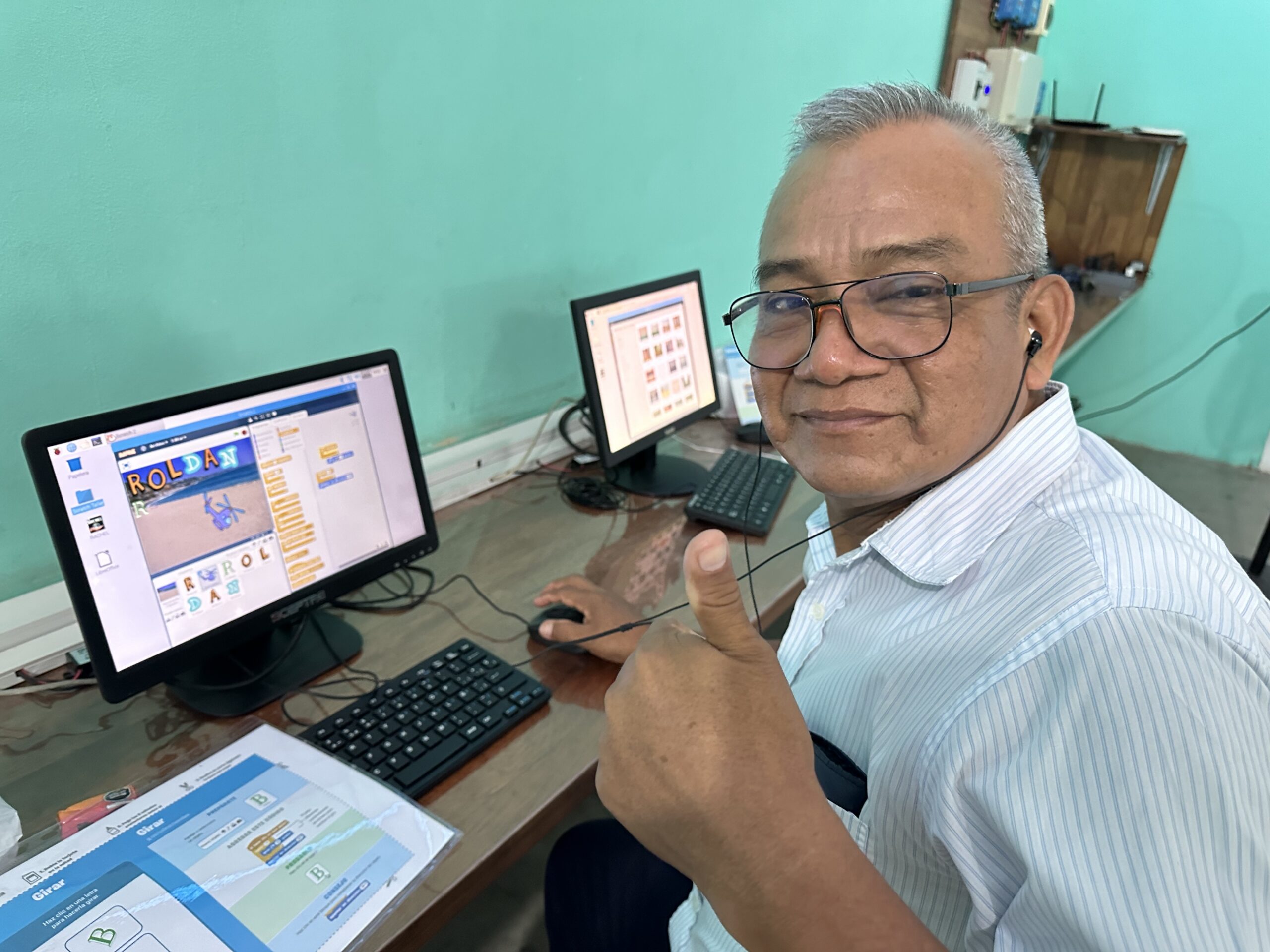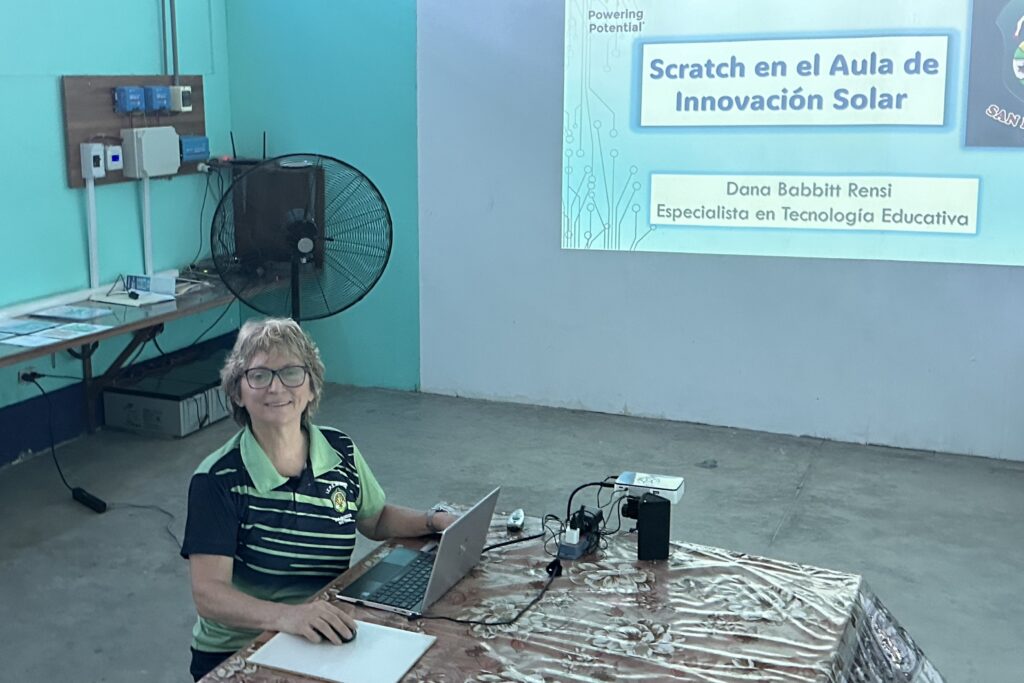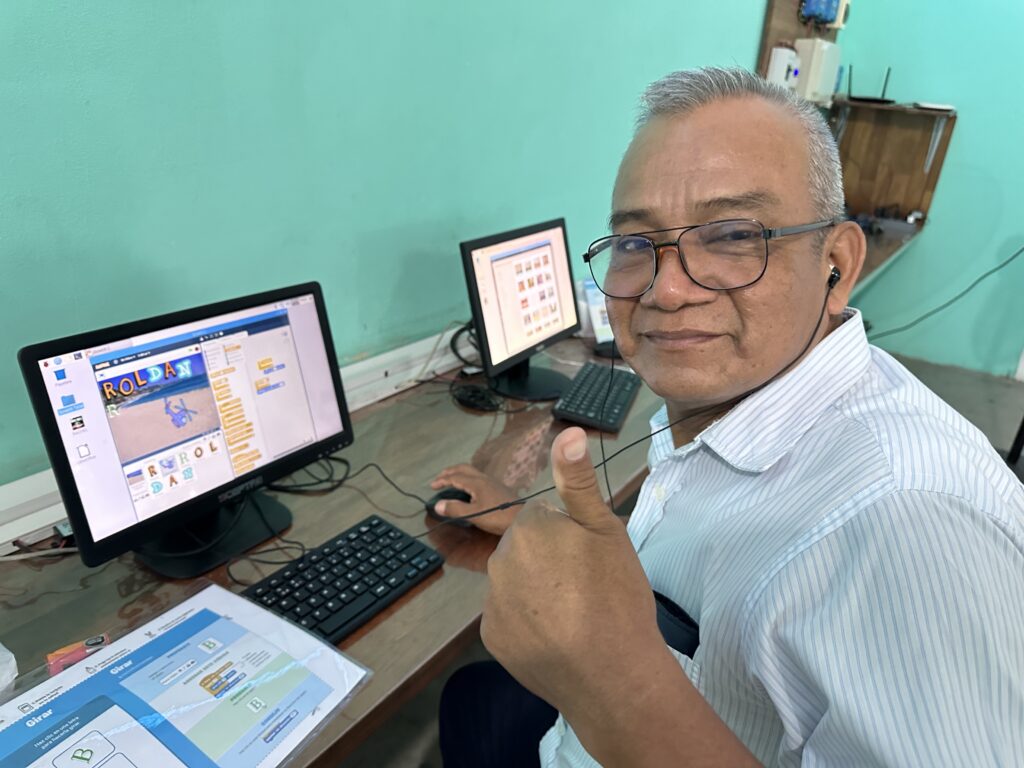“My name is Gladness Laurent, I am 18 years old, Form 4 at Sumawe Secondary School. The Powering Potential project has helped me to get curriculum based notes for various subjects, answer sample questions, and take practice quizzes. While I am preparing for my Form 4 National exam, I have used the computers provided by Powering Potential to learn how [national exam] questions are answered. So, I express my sincere gratitude to PPI and all who made this project possible here at our school.”
Access to quality education and opportunity starts with supporters like you. Since 2007, it’s been our mission to empower young minds to step into the 21st century with confidence and capability.
This week, across Tanzania, secondary school students are sitting for their national exams. These exams play a pivotal role in the Tanzanian Education System. Performance influences students’ academic and career pathways. Failure to pass these exams limits students’ advancement in higher education and employment opportunities.
How do national exams work?
National exams are taken in Standard 7 (American equivalent of 7th grade), Form II (9th grade), and Form IV (11th grade) to determine if students can pass to the next grade. If a student makes it past Form IV, they take more exams in Form VI to determine if they qualify to attend university.
What subjects are they tested on?
Students are tested on Math, Chemistry, Biology, Physics, English, Kiswahili, History, Geography, Civics, and Agriculture. Powering Potential’s program has also enabled some students to take the exam for Information and Communication Technology (i.e. computer skills).
How does your support help?
Shortage of teachers, limited school resources, no access to consistent electricity, and lack of technology affect students’ ability to succeed in school. A shortage of textbooks and other study materials limits students’ ability to prepare for the exams.
Powering Potential, with the help of supporters like you, provides solar-powered computer labs, digitized learning materials, and comprehensive digital skills training in public schools. These materials make sure students have the resources they need to succeed at their exams and beyond.
Join our community of passionate givers
Barnabas Kapange of our local partner, Potential Enhancement Foundation, wrote the following about the Tanzanian education system:
Tanzania’s secondary education system reflects a structured but challenging landscape, shaped by language transitions, exam-based progression, a shortage of resources, and financial constraints for many families. The system’s 7-4-2-3 educational model—7 years of primary, 4 years of lower secondary, 2 years of upper secondary, and 3 or more years of tertiary—sets a solid framework, but its quality varies notably between urban and rural regions and across public and private institutions.
Key Structural Components and Challenges:
- Shortage of Textbooks and Teachers: Many schools, especially in rural areas, lack enough textbooks for each child. At some schools, there is one book for every 10 students. High turnover rates among teachers can lead to suboptimal teaching skills and gaps in learning.
- Language Transition: With Kiswahili as the primary language in public primary schools and English as the medium for secondary and tertiary education, students face a significant language barrier. This bilingual approach seeks to blend local accessibility with global relevance, but many students struggle with the abrupt shift to English, affecting their comprehension and learning in higher grades.
- Exams and Academic Progression: National exams play a pivotal role in the system, especially in grades Form 2, Form 4, and Form 6. These exams determine whether students can progress to the next educational level. Performance is classified into divisions, which influence students’ academic and career pathways. Failure to pass these exams limits students’ advancement, pushing them toward vocational or certificate courses instead of A-level or university tracks.
- Public vs. Private Schooling: While government schools, or public schools, offer free secondary education, indirect costs such as uniforms, books, and supplies make schooling unaffordable for many. In contrast, private schools, which typically use English from primary onward, cater to higher-income families and often yield better academic outcomes due to resources and lower teacher-student ratios.
- Completion Rate and Educational Quality: With less than 30% of Tanzanian students completing secondary education, retention remains low compared to countries like the U.S., where high school completion rates are over 87%. Factors such as early-grade literacy challenges (with only 5.4% reading comprehension in lower grades) and limited educational resources contribute to this gap.
Although Tanzania’s secondary education system is structured and affordable, practical challenges hinder accessibility and quality. Addressing these issues requires further investment in educational quality and resources.
